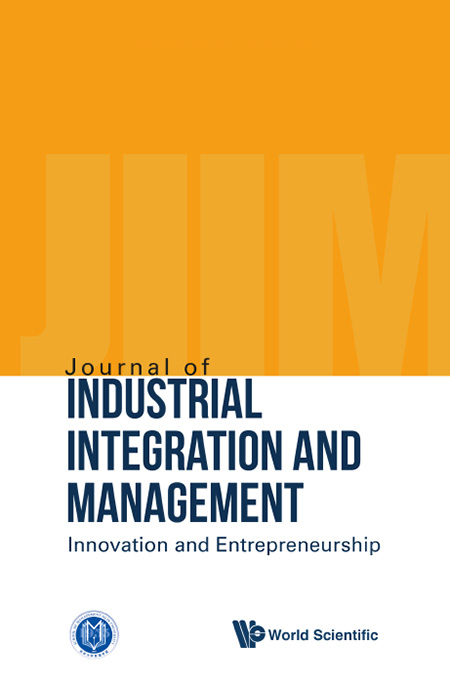实施循环经济实践的策略:一个模糊DEMATEL方法
IF 3.3
Q2 MANAGEMENT
Journal of Industrial Integration and Management-Innovation and Entrepreneurship
Pub Date : 2020-05-29
DOI:10.1142/s2424862220500050
引用次数: 26
摘要
消费者越来越关注在不影响当前生活方式的情况下保护环境。在这种情况下,组织正在寻找一种能够有效实现其业务目标的可持续商业模式。循环经济的概念作为一种解决方案正在兴起,它可以帮助将工业化的不良影响降到最低。通过循环实践有效地采用和实施循环经济。然而,采用循环经济的做法对行业来说并不容易,它需要一个全面的战略。因此,本研究旨在确定和评估在当前背景下实现循环经济实践的关键策略。为了实现研究目标,本研究确定了采用循环经济实践所需的11个重要策略。这些策略是通过文献综述和专家焦点小组讨论的综合方法确定的。此外,利用模糊DEMATEL对这些关键策略进行了评估,并建立了策略之间的因果关系。应用方法还将策略分为因果组。原因组包含五个策略,而效果组包含六个策略。这一发现表明,“管理层的参与、支持和承诺”以及“为循环经济制定愿景和目标”是重要的战略。本研究将有助于管理者制定实施循环实践的行动计划,以转向循环经济。本文章由计算机程序翻译,如有差异,请以英文原文为准。
Strategies to Implement Circular Economy Practices: A Fuzzy DEMATEL Approach
There is a growing concern among consumers for preserving the environment without compromising the current lifestyle. In this context, organizations are looking for a sustainable business model that can fulfil their business objectives effectively. The concept of the circular economy is emerging as a solution that can help the minimization of the ill effect of industrialization. The circular economy is efficiently adopted and implemented through circular practices. However, the adoption of circular economy practices is not easy for the industries, and it requires a comprehensive strategy. Therefore, this study aims to identify and evaluate the key strategies to accomplish circular economy practices in the present-day context. In order to fulfil the research objective, this study identified 11 significant strategies that are needed for the adoption of circular economy practices. These strategies are identified using an integrated approach of the literature review and focus group discussion with experts. Further, these key strategies are evaluated using the fuzzy DEMATEL and developed a causal relationship among the strategies. The applied method has also classified the strategies into cause and effect group. The cause group comprises the five strategies, while effect group contain the six strategies. The finding suggests that “management involvement, support and commitment” and “creating a vision and goals for circular economy” are prominent strategies. This study will facilitate the managers to make the action plan for implementing the circular practices in order to shift towards the circular economy.
求助全文
通过发布文献求助,成功后即可免费获取论文全文。
去求助
来源期刊
CiteScore
17.00
自引率
16.70%
发文量
31
期刊介绍:
The Journal of Industrial Integration and Management: Innovation & Entrepreneurship concentrates on the technological innovation and entrepreneurship within the ongoing transition toward industrial integration and informatization. This journal strives to offer insights into challenges, issues, and solutions associated with industrial integration and informatization, providing an interdisciplinary platform for researchers, practitioners, and policymakers to engage in discussions from the perspectives of innovation and entrepreneurship.
Welcoming contributions, The Journal of Industrial Integration and Management: Innovation & Entrepreneurship seeks papers addressing innovation and entrepreneurship in the context of industrial integration and informatization. The journal embraces empirical research, case study methods, and techniques derived from mathematical sciences, computer science, manufacturing engineering, and industrial integration-centric engineering management.

 求助内容:
求助内容: 应助结果提醒方式:
应助结果提醒方式:


